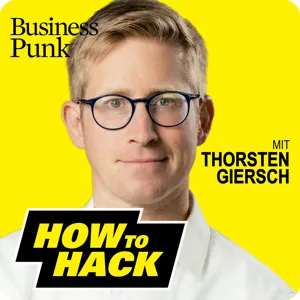Podcast Summary
Lost Experiences in the Digital Age: The Internet brings convenience but also causes us to lose valuable experiences like face-to-face conversations and moments of boredom, fostering deeper connections and creativity. Consider recapturing lost experiences if feeling nostalgic, and prioritize real-life interactions.
The Internet has drastically changed our lives, bringing constant access to information, entertainment, and connection, but also causing us to lose certain experiences and conversations that once defined our daily interactions. Pamela Paul, author of "100 Things We've Lost to the Internet," shares her insights on the good and bad aspects of life before and after the digital age. She encourages us to remember and even recapture some of those lost experiences if we feel nostalgic. The Internet may have made our lives more convenient, but it's important to remember the value of face-to-face conversations and moments of boredom, as they foster deeper connections and creativity. Additionally, companies like Whole Foods Market offer wallet-friendly options for hosting celebratory brunches that encourage us to disconnect and enjoy the company of others in real life.
Reflecting on the impact of technology on our lives: Consider the value of simple experiences and the impact of technology before adopting new trends.
Before adding new technologies to our lives, it's essential to consider if they truly enhance our experiences or if we're just following the trend. The speaker's 100 items in her book serve as a reflection on the everyday effects of the Internet, reminding us of what came before and encouraging us to appreciate the simple things. One example she gave was opening a car door with a key, a simple act that left her daughter in awe. Among the 100 items, she misses closure the most, as the Internet's permanence makes it challenging to move on from past relationships or experiences. The speaker wrote the book now to inspire readers to reflect on the impact of technology on their lives and to appreciate the value of the past.
The Value of Disconnecting from Technology: Reflect on the importance of human connection and disconnecting from technology to reconnect with ourselves and the world around us.
The Internet has significantly changed the way we live and interact with each other, but it's important to remember and appreciate the pre-Internet world and the skills and connections we used to rely on. The speaker shares their personal experience of feeling disconnected when leaving their phone at home and the challenges that come with it, such as getting directions or communicating with others. However, they also emphasize that our core emotions and fundamental social nature remain the same, and the Internet only amplifies them. The speaker encourages us to reflect on the importance of human connection and the value of disconnecting from technology to reconnect with ourselves and the world around us.
Navigating the Digital Age: Balancing Advantages and Disadvantages: Embrace the benefits of digital culture while being mindful of its potential drawbacks, adapting to change in a way that suits individual needs and preferences.
The internet and digital culture have significantly changed the way we consume information and process emotions, leading to an overwhelming amount of stimuli in our daily lives. This change is not uniformly positive or negative, as what feels like a disadvantage for some can be a lifesaver for others. For instance, while some people may prefer reading books in print, others with visual or auditory processing disorders benefit greatly from digital texts and audio components. Similarly, while some may enjoy the serendipity of exploring a new place without the aid of Google Maps, others find it indispensable in emergencies. For those longing for a more analog way of life, it's not an easy transition, but it's possible. The author himself quit Facebook and Twitter two months ago and finds the experience refreshing, despite the initial strangeness. Ultimately, everyone must grapple with this exponential change brought about by technology and adapt in their unique ways.
Consider the significance of online connections: Reflect on the importance of meaningful online relationships and intentional media consumption to avoid distractions and maximize social capital.
It's important to be intentional about our use of social media and consider who we're connecting with and what we're sharing. The speaker suggests that we should reflect on whether the people we're interacting with online are truly meaningful to us in real life. Additionally, we should be mindful of the information we're consuming and the distractions that come with constant connectivity. The speaker shares concerns about missing out on social capital and being "in the know," but ultimately argues that we have more information than we can absorb and need to make deliberate choices about what we pay attention to. The use of multiple devices while consuming media, such as TV shows or podcasts, can detract from the intended immersive experience. Overall, the speaker encourages us to think critically about our online presence and prioritize intentional engagement over constant distraction.
Effective ways to reduce screen time: Intentionally forgetting your phone, creating phone-free zones, setting limits, and considering the importance of a phone-free environment for relaxation and focus can help reduce screen time.
Limiting our use of technology, particularly smartphones, can lead to increased confidence in problem-solving and a more balanced, "analog" lifestyle. Pamela Paul, an opinion columnist for The New York Times and author, suggested intentionally forgetting your phone, creating phone-free zones, and setting limits for yourself and your family as effective ways to reduce screen time. Paul also advised considering the importance of joining a social media platform and the potential benefits of a phone-free environment for relaxation and focus. A listener's tip involved using paper towels, Clorox, and a long soak to eliminate mold from the rubber lip of a front-loading washer without scrubbing. Overall, the discussion emphasized the importance of intentional choices in managing technology use and the potential benefits of a more mindful, low-tech approach to life.
Exploring Solutions to Climate Change with Innovative Podcasts: Listen to podcasts like NPR's Choiceology and Here and Now to learn about individuals and companies addressing climate change through innovative solutions. Support these initiatives to contribute to a more sustainable future.
There are teams of dedicated individuals working on innovative solutions to address climate change in various industries. At NPR, the Choiceology podcast introduces listeners to the minds behind economic and psychological decision-making, including Claire Marie Schneider, Sylvie Douglis, Audrey Wynne, Dalia Mortada, and Beck Harlan. Meanwhile, NPR and WBUR's Here and Now presents Transportation Climate Solutions, featuring individuals who are finding cleaner ways to travel. On the corporate side, sponsors like Charles Schwab and Capella University support these educational and informative podcasts. Charles Schwab's Choiceology showcases the psychology and economics behind people's decisions, while Capella University offers flexible online learning to help students earn degrees at their own pace. By supporting these initiatives and staying informed, we can all contribute to a more sustainable future. Remember, every small step counts, and collectively, we can make a difference. Listen to the latest episodes of Choiceology and Transportation Climate Solutions to learn more and subscribe at schwab.com/podcast and wherever you listen to podcasts.






